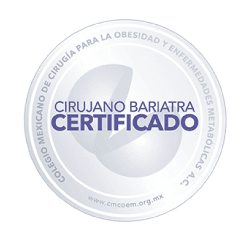Gastric Sleeve Surgery at CER Bariatrics in Mexico
Introduction
Being overweight doesn’t just affect you; it impacts those around you and your quality of life. If traditional weight loss methods have failed you, it’s time to consider a more permanent solution: Gastric Sleeve Surgery in México at CER Hospital. Our board-certified surgeons are experts in the field, ensuring you get the best care and results.
Get Started
What is Gastric Sleeve Surgery?
Gastric Sleeve, also known as Sleeve Gastrectomy, is a minimally invasive bariatric surgery that significantly reduces the size of your stomach. By removing over 80% of your stomach, this procedure limits your food intake and helps you feel full faster. Additionally, the surgery reduces levels of Ghrelin, the hormone responsible for hunger, further aiding in weight loss.
Eligibility Criteria:
Candidates for this life-changing procedure must have a BMI of 30 or higher. Our track record shows that patients typically lose over 75% of their excess weight, which also leads to the improvement of obesity-related conditions like diabetes and hypertension.
Benefits of Gastric Sleeve Surgery in Mexico.
Why Choose CER Bariatrics in Tijuana, Mexico?
Choosing the right facility for your bariatric surgery is crucial. At CER Bariatrics, we offer:
Your Journey with CER Bariatrics: Before, During, and After
Embark on a transformative journey with CER Bariatrics, where we guide you every step of the way. From initial consultations to personalized medical evaluations, we prepare you for the life-changing procedure. During your stay, enjoy 24-hour service in a comfortable recovery suite, with a dedicated team ensuring your well-being. Post-surgery, our experts provide comprehensive recovery guidelines and long-term support, setting you on the path to a healthier future.
Before Surgery:
During Your Stay:






